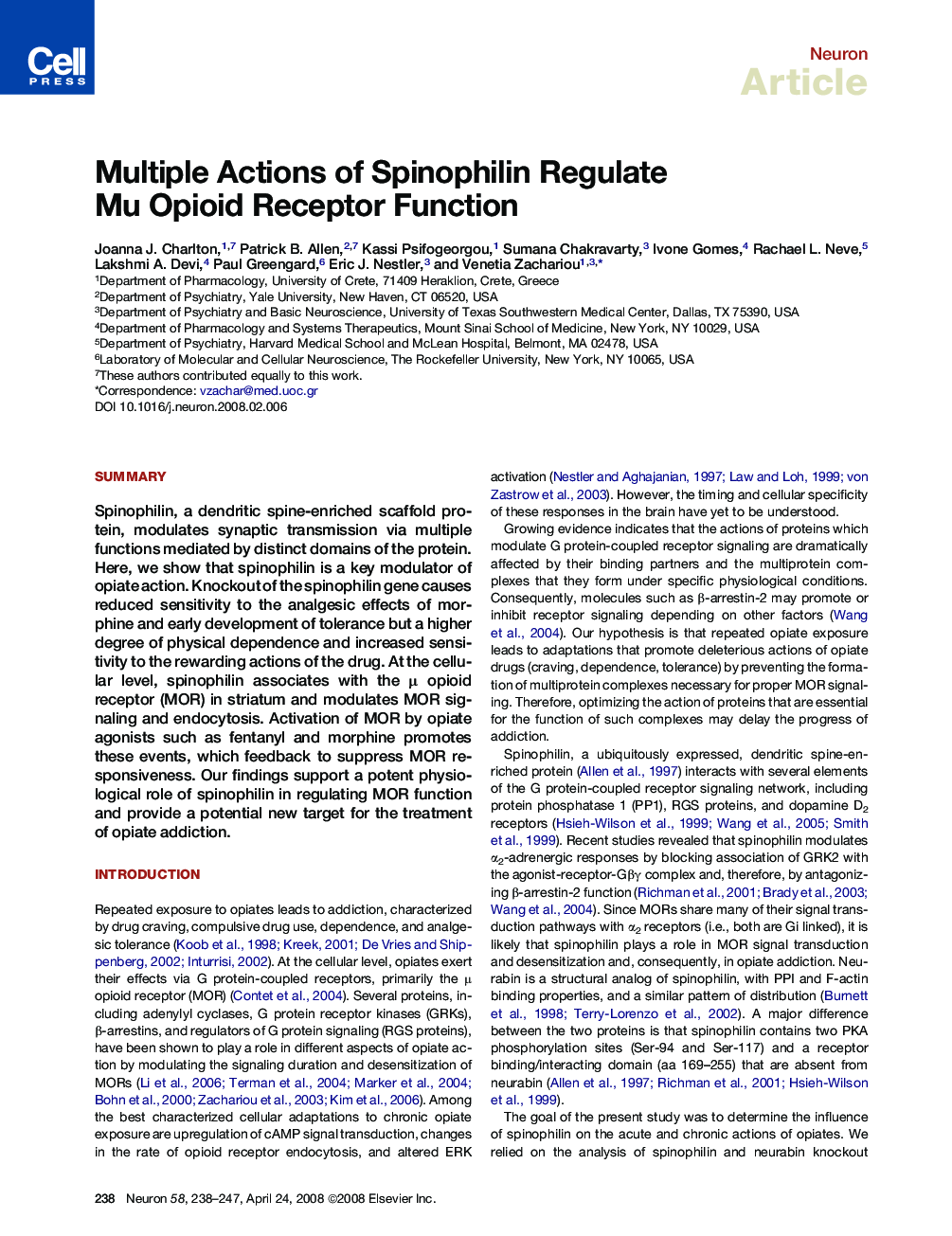| Article ID | Journal | Published Year | Pages | File Type |
|---|---|---|---|---|
| 4322465 | Neuron | 2008 | 10 Pages |
SummarySpinophilin, a dendritic spine-enriched scaffold protein, modulates synaptic transmission via multiple functions mediated by distinct domains of the protein. Here, we show that spinophilin is a key modulator of opiate action. Knockout of the spinophilin gene causes reduced sensitivity to the analgesic effects of morphine and early development of tolerance but a higher degree of physical dependence and increased sensitivity to the rewarding actions of the drug. At the cellular level, spinophilin associates with the μ opioid receptor (MOR) in striatum and modulates MOR signaling and endocytosis. Activation of MOR by opiate agonists such as fentanyl and morphine promotes these events, which feedback to suppress MOR responsiveness. Our findings support a potent physiological role of spinophilin in regulating MOR function and provide a potential new target for the treatment of opiate addiction.
